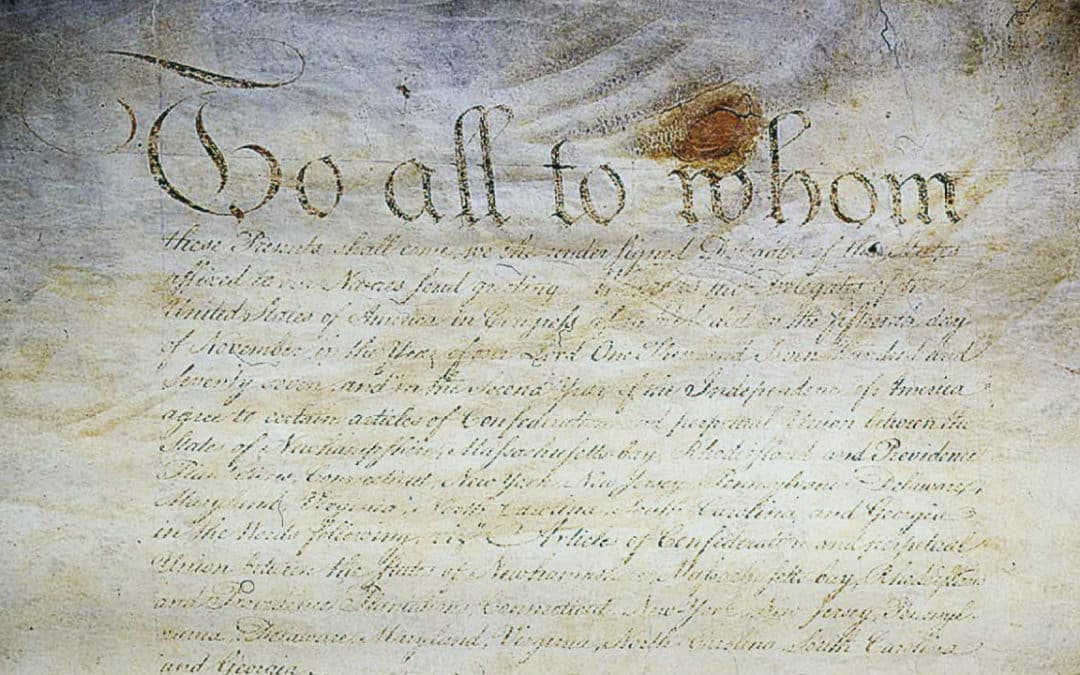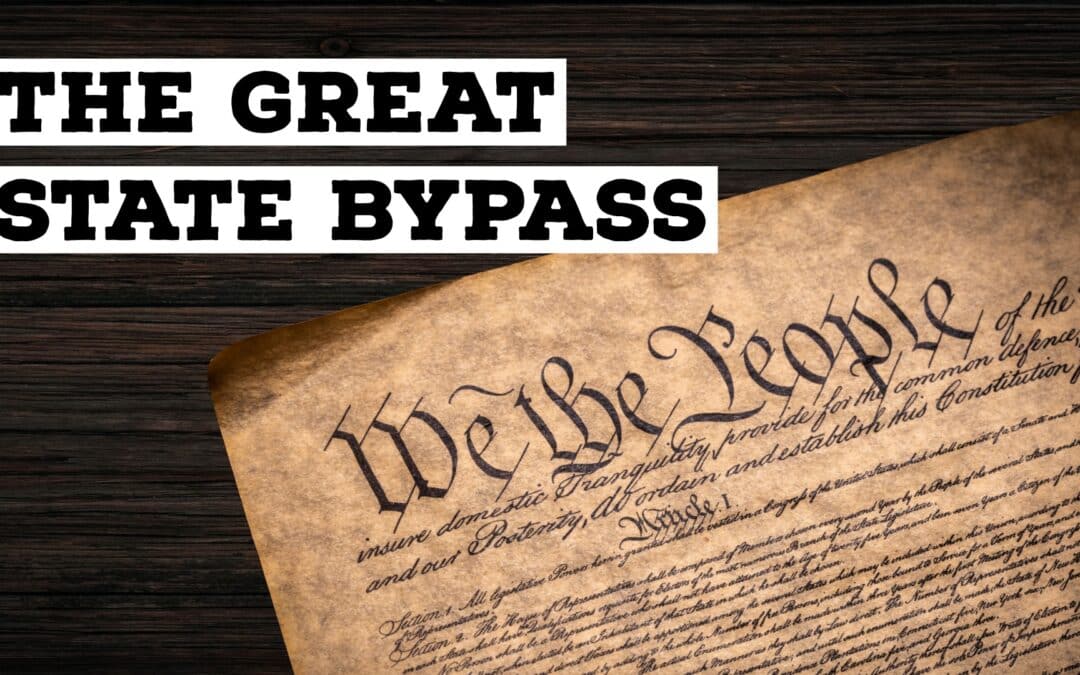
Articles of Confederation


The National Bank That Breached the Articles of Confederation
Despite having no express authority to do so, Congress created a national bank under the Articles of Confederation by invoking an invented doctrine of “inherent sovereign authority.” The episode reveals that even under a framework built on explicit and limited...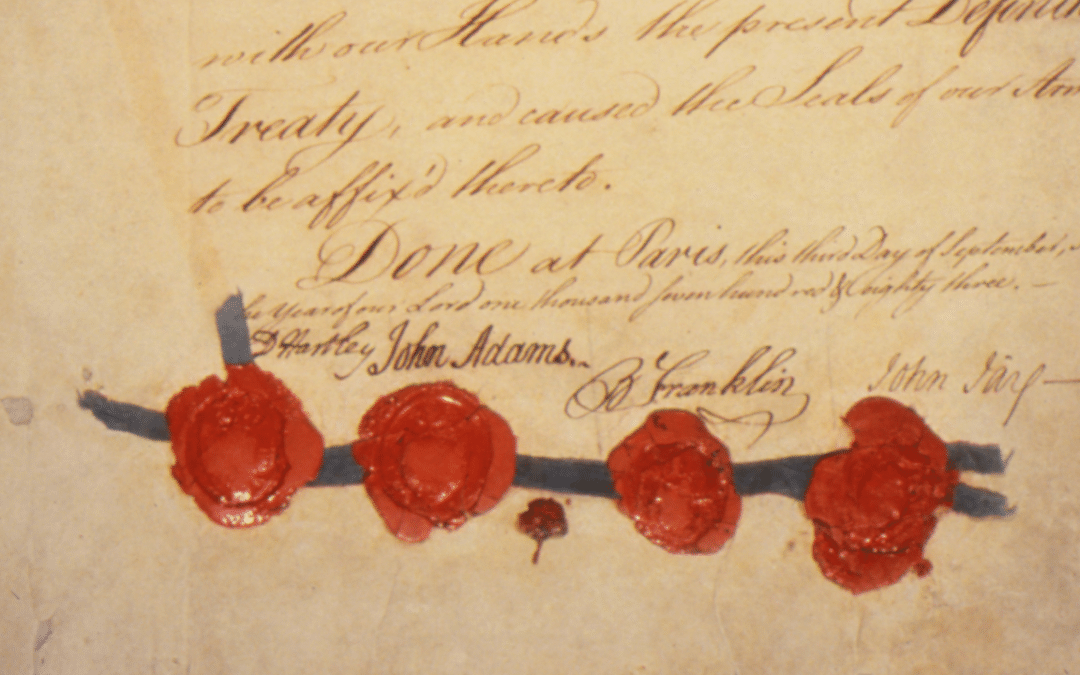
The Treaty of Paris: How the War for Independence Almost Didn’t End
Signed on Sept 3, 1783 – the Treaty of Paris has long been called the formal end to the War for Independence. But the war didn’t officially end on that date with the signatures of Benjamin Franklin, John Adams and John Jay. The treaty, made with 13 free,...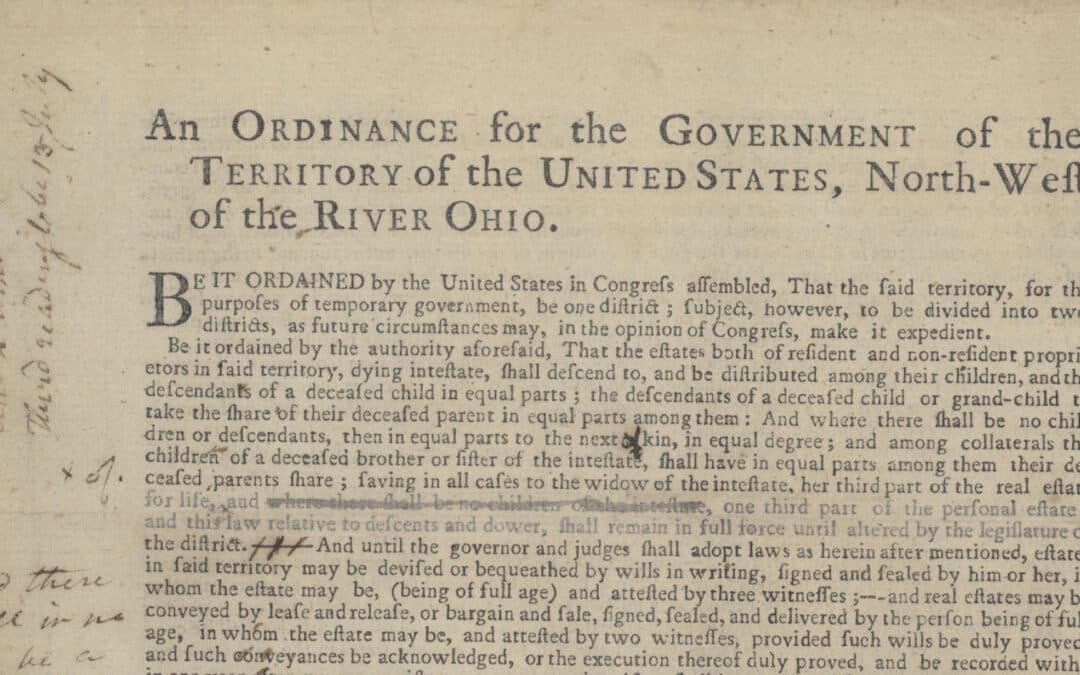
Northwest Ordinance: Landmark 1787 Law Set the Foundation
On July 13, 1787, the Confederation Congress passed the Northwest Ordinance, one of the most important and influential acts of the early republic. It established a bill of rights years before one was added to the Constitution, and prohibited slavery in the territory...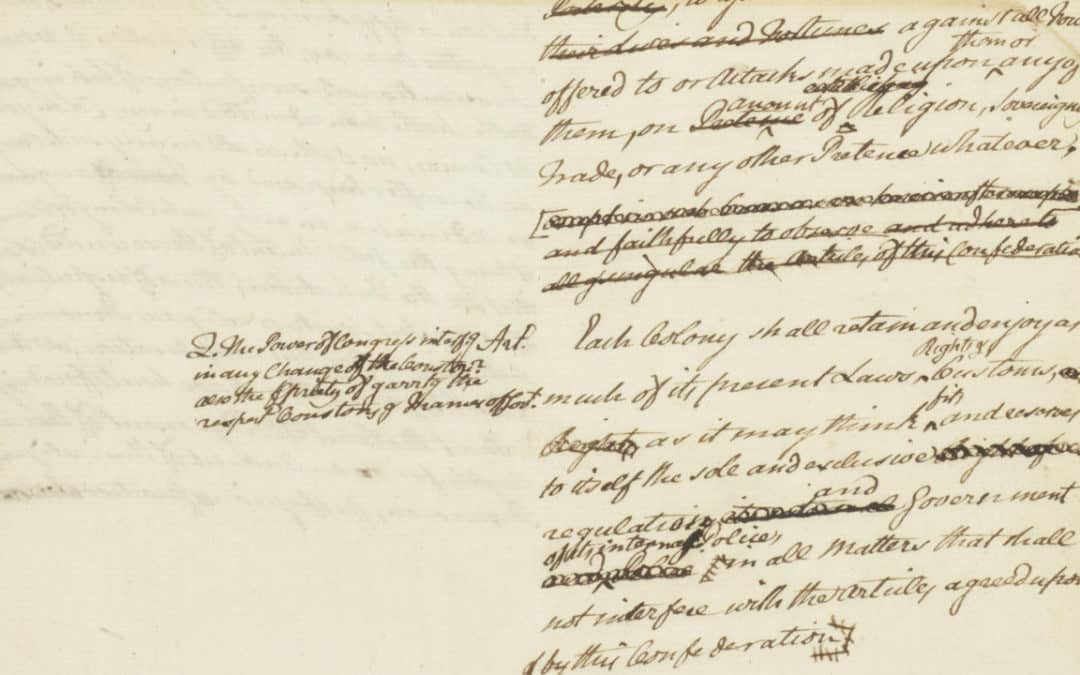
Today in History: Continental Congress Approves Final Draft of the Articles of Confederation
On Nov. 15, 1777, the Second Continental Congress finalized the Articles of Confederation after 16 months of debate. The Articles were then sent to the states for consideration, and once ratified, formally united the 13 states into a confederation that retained for...